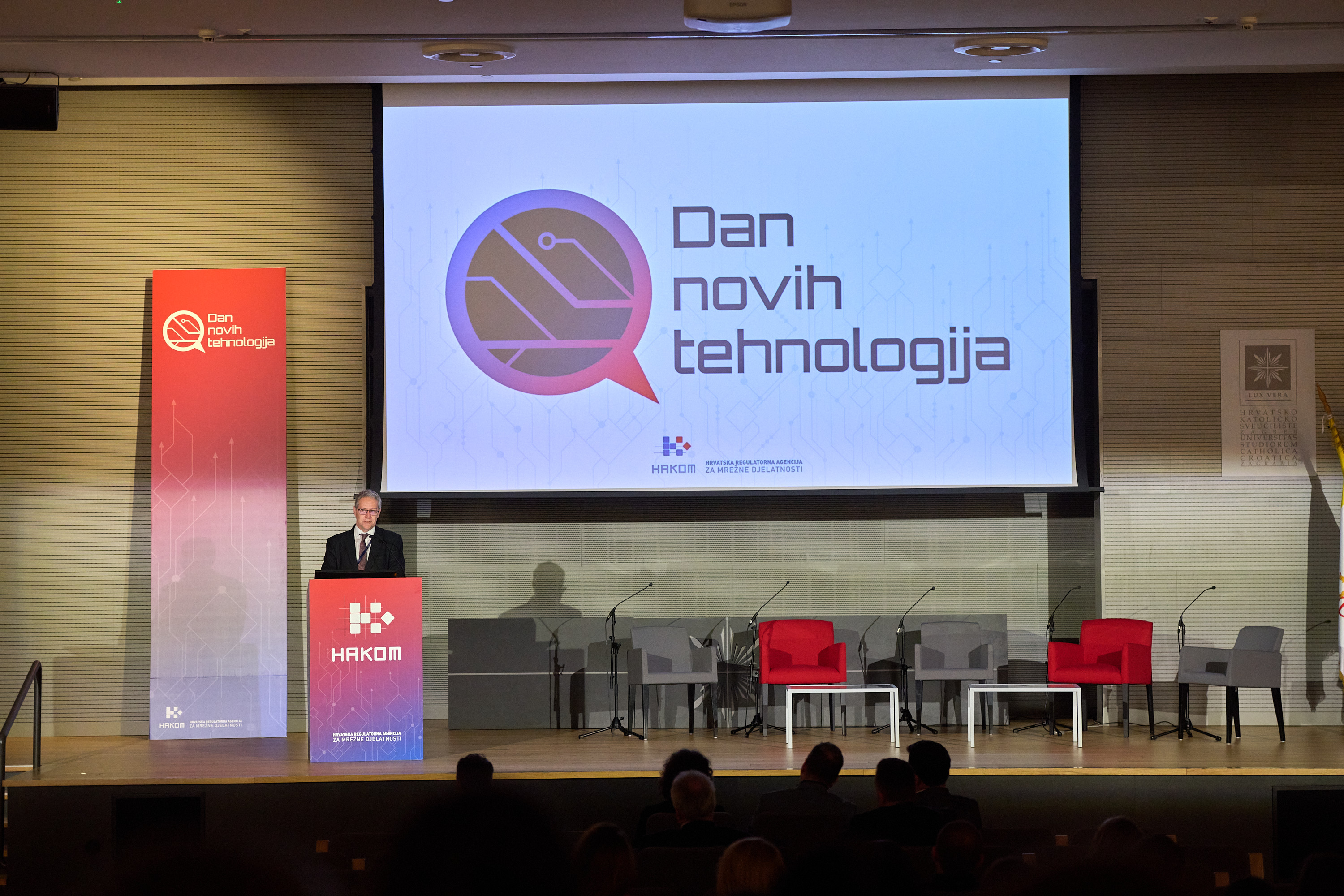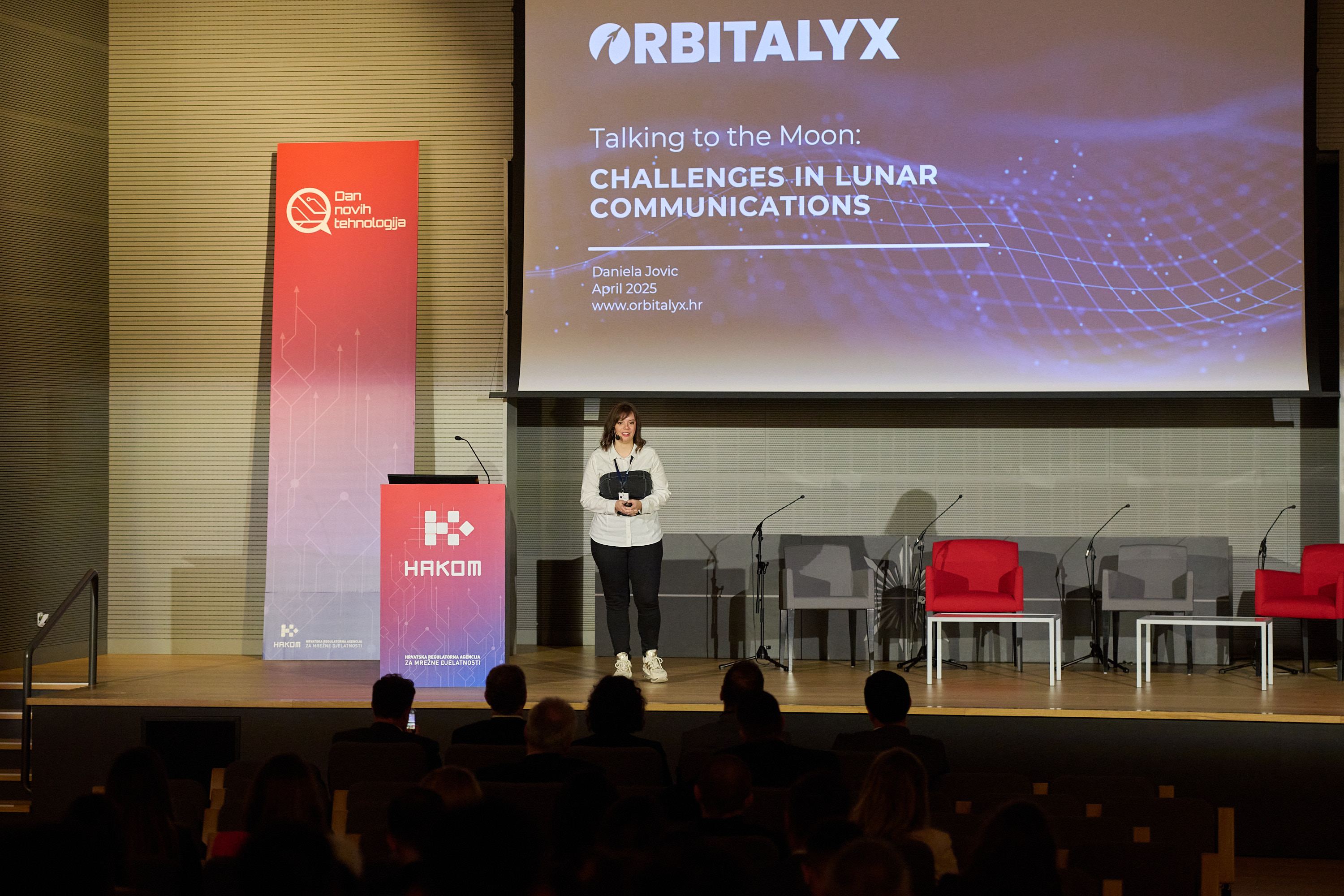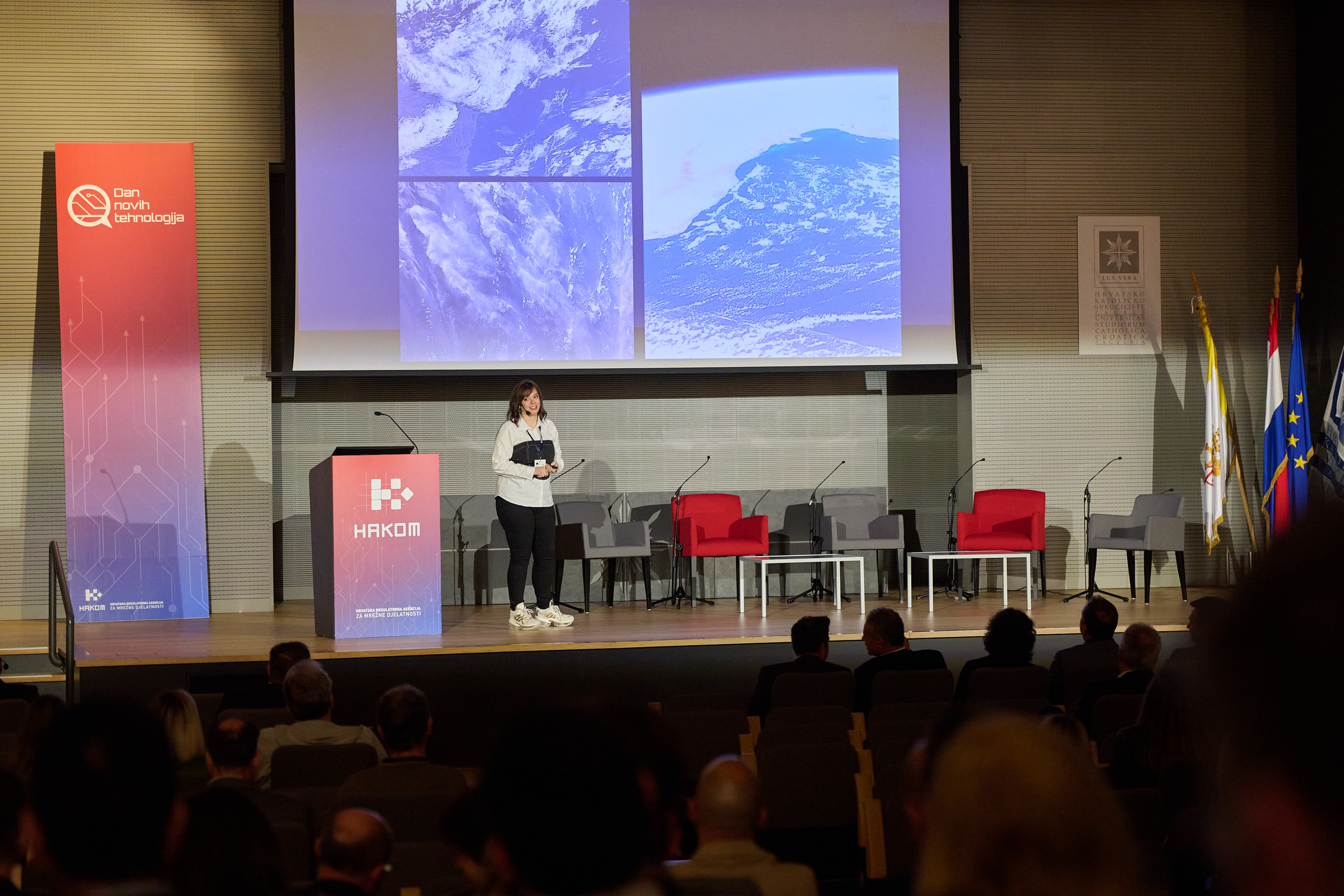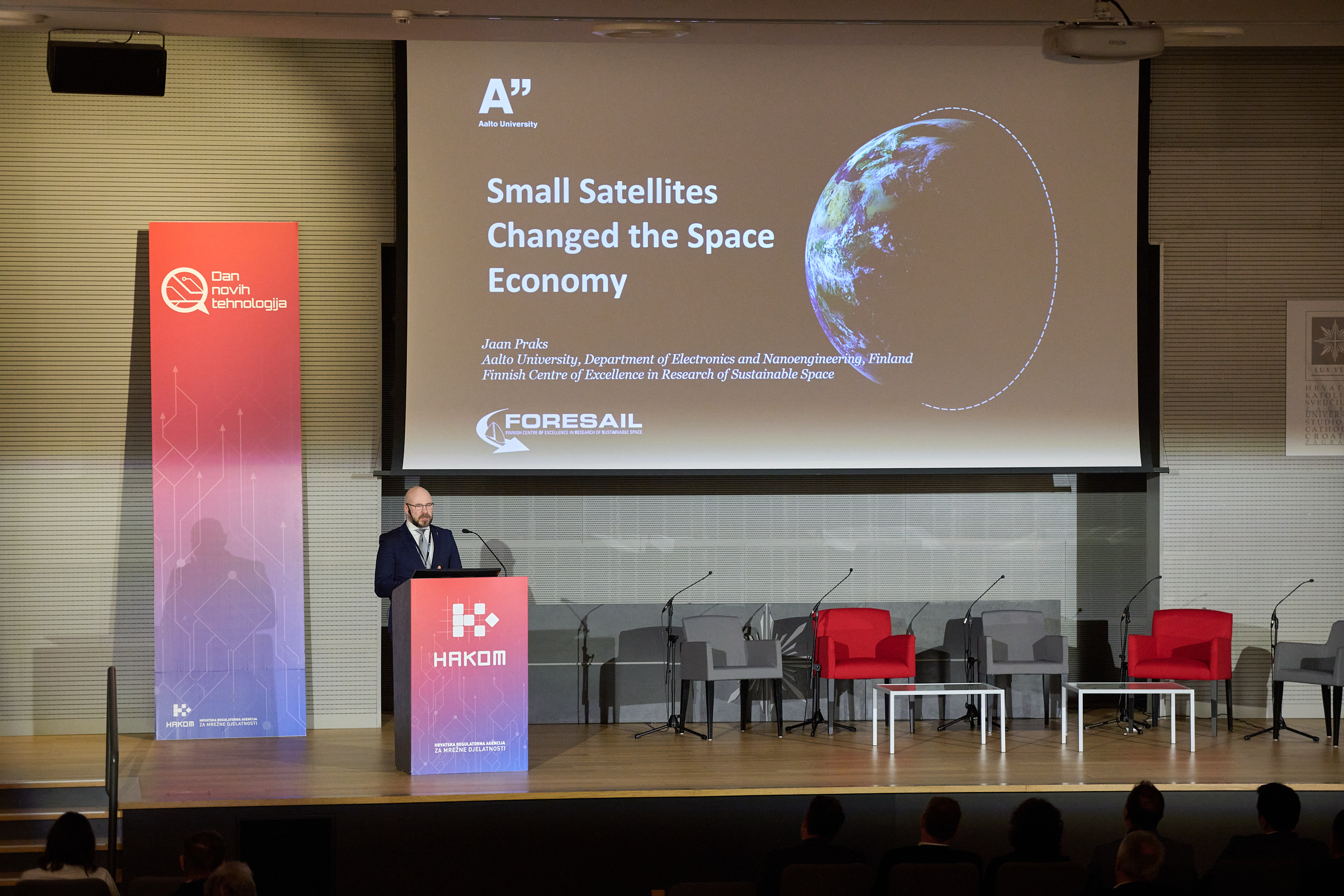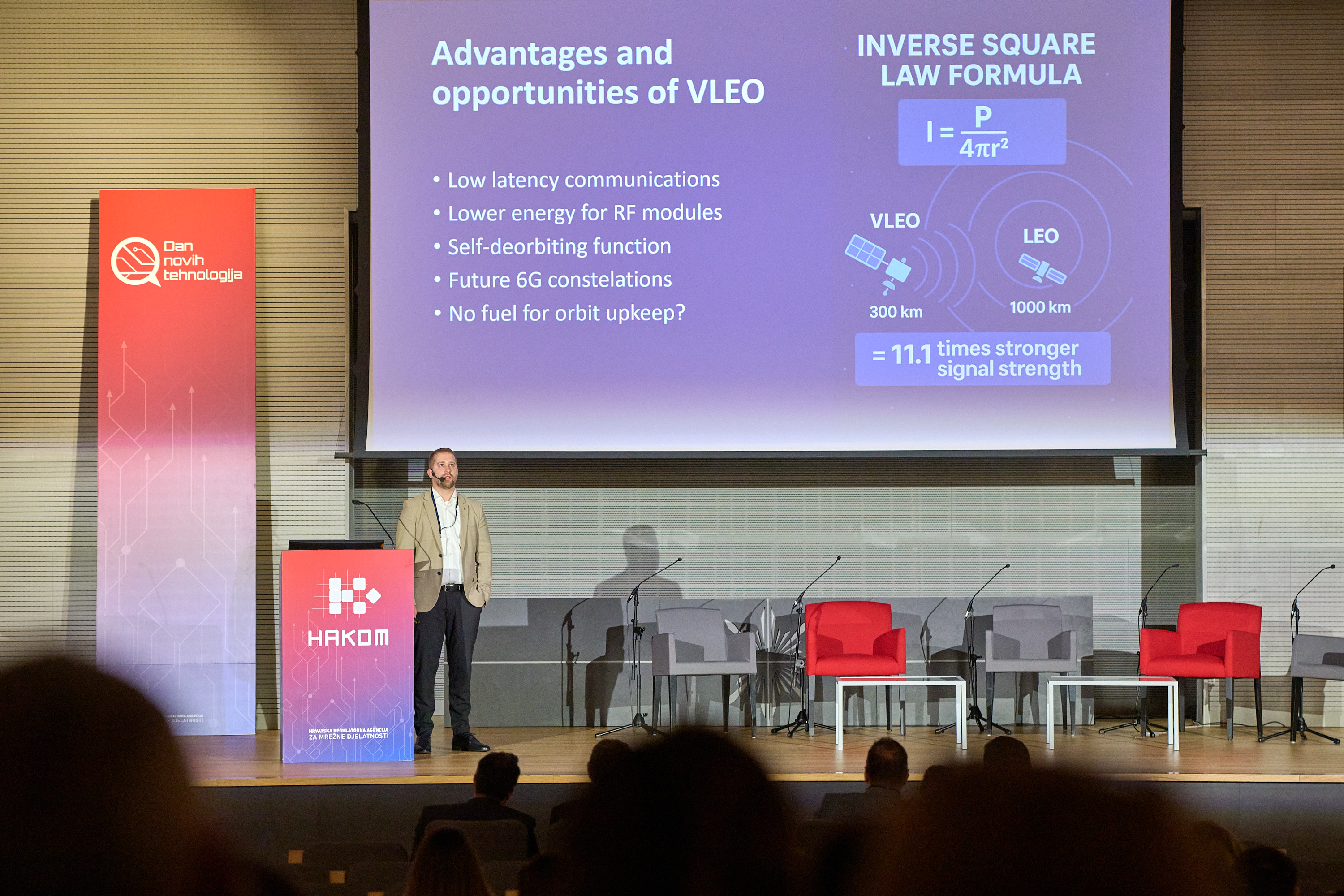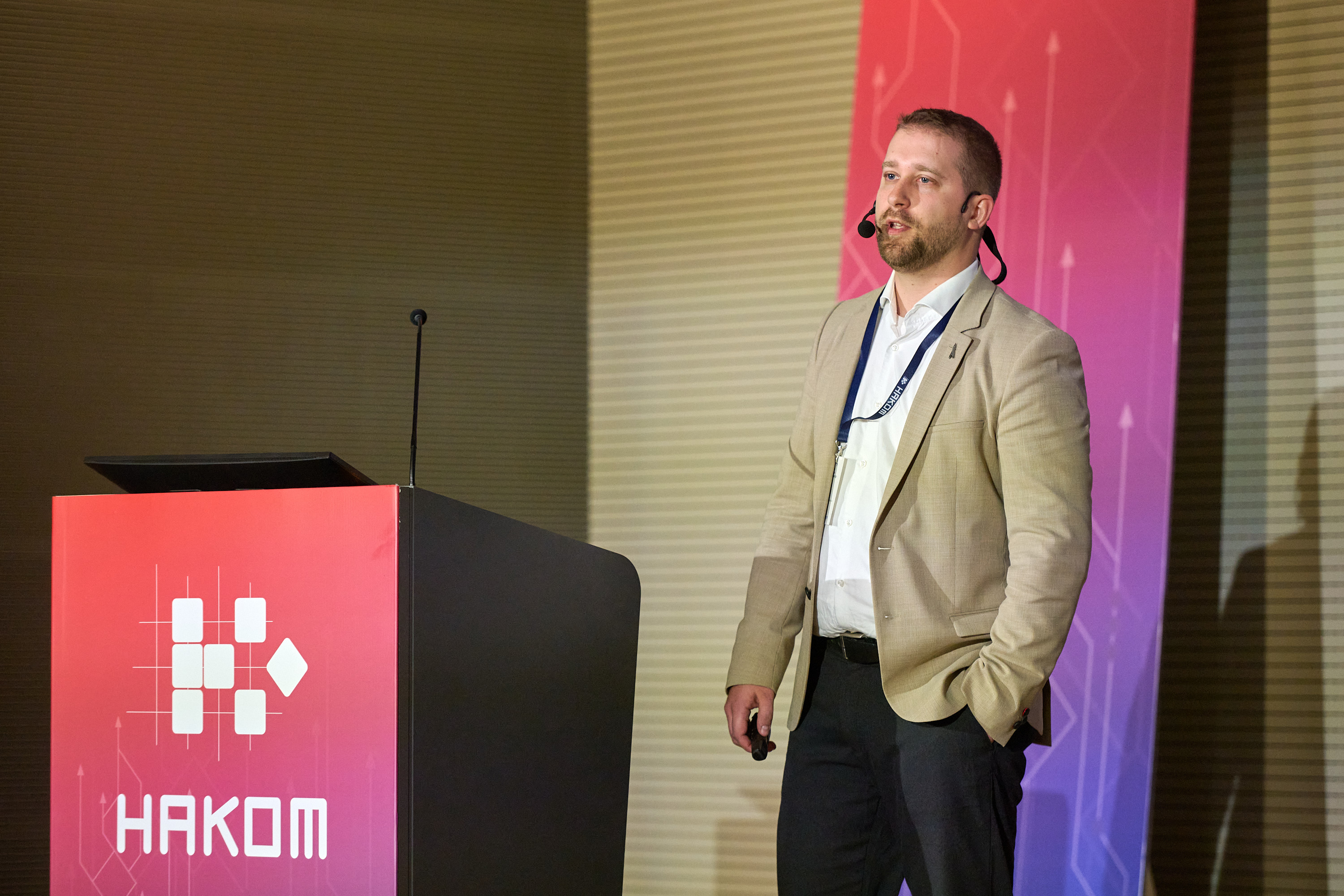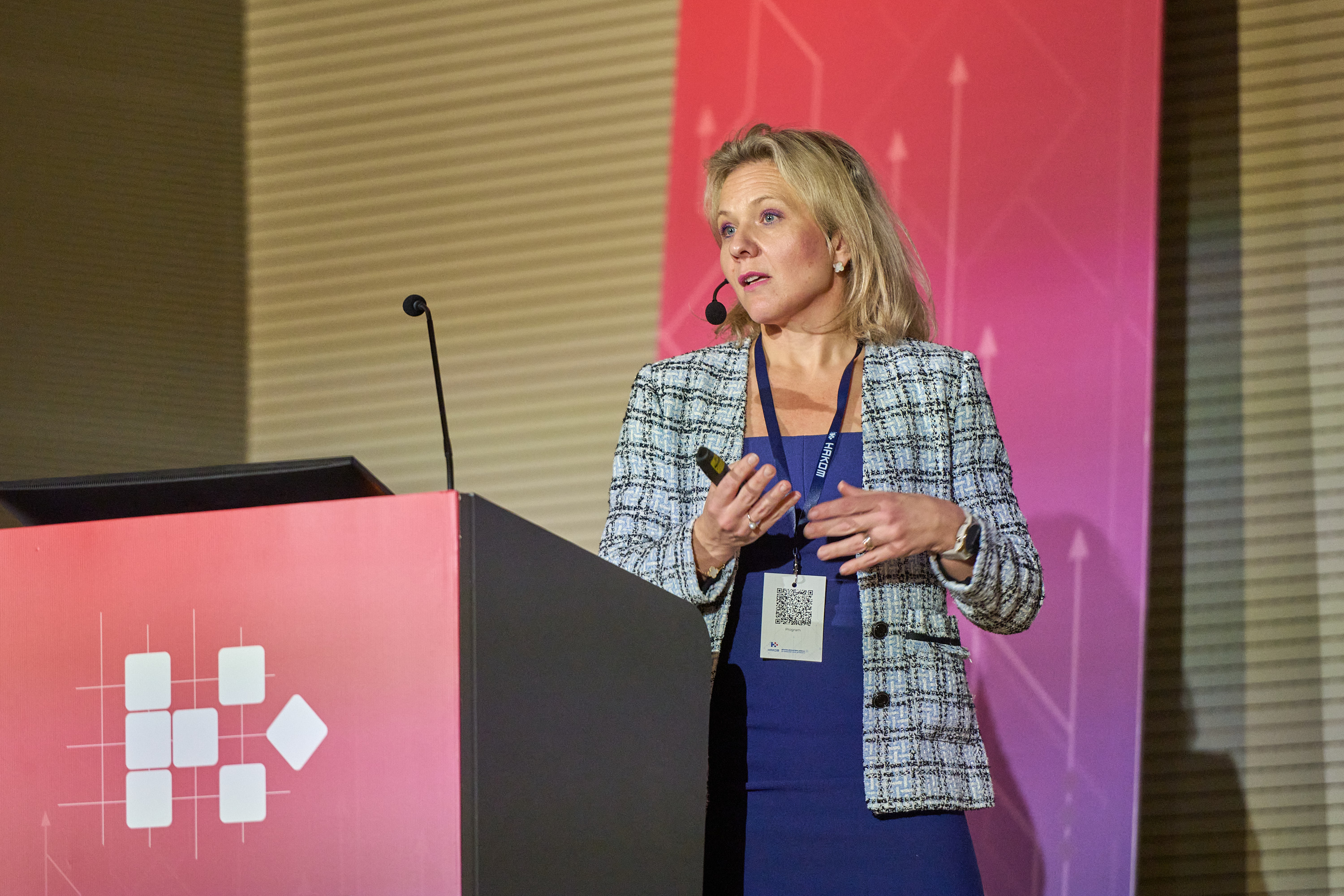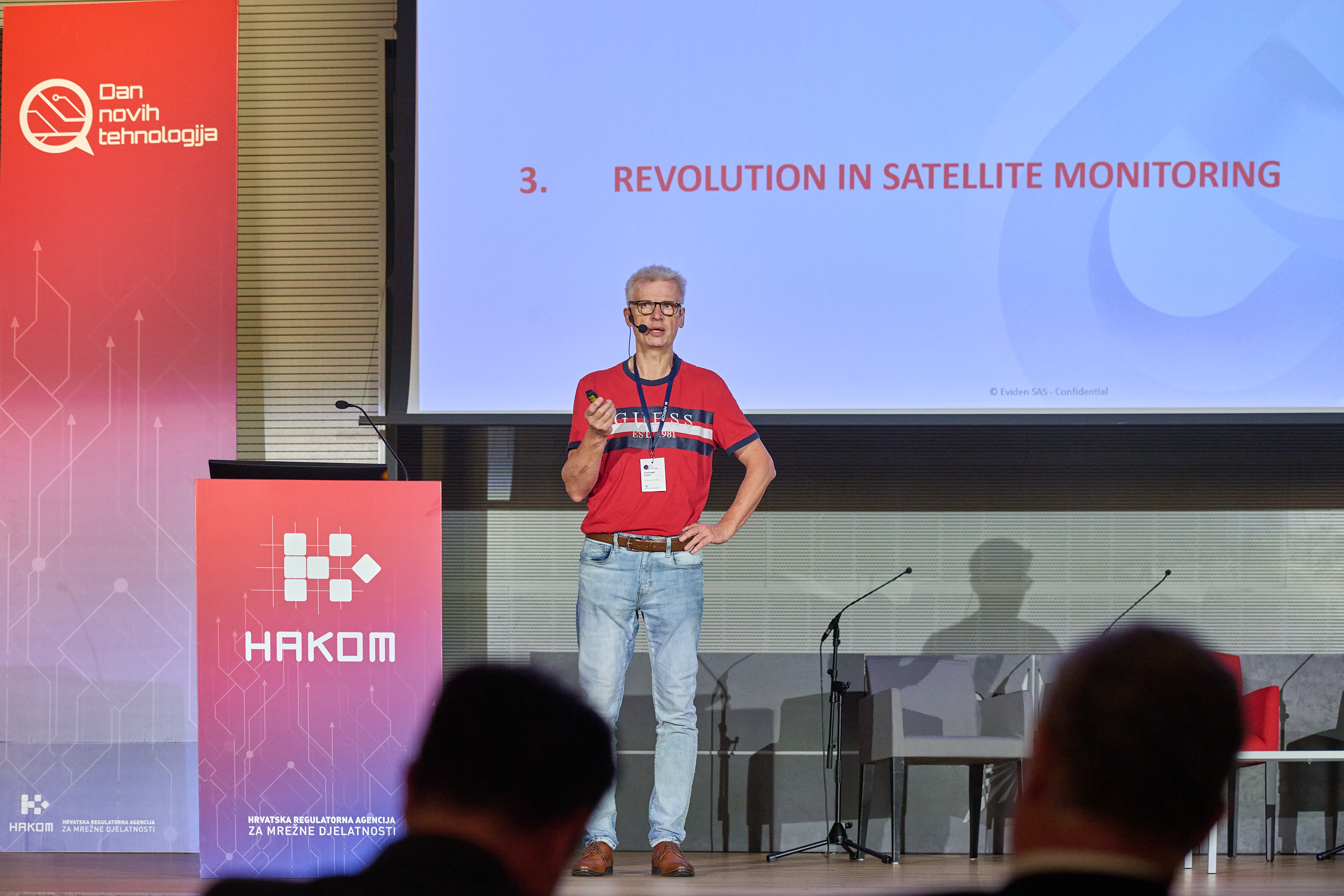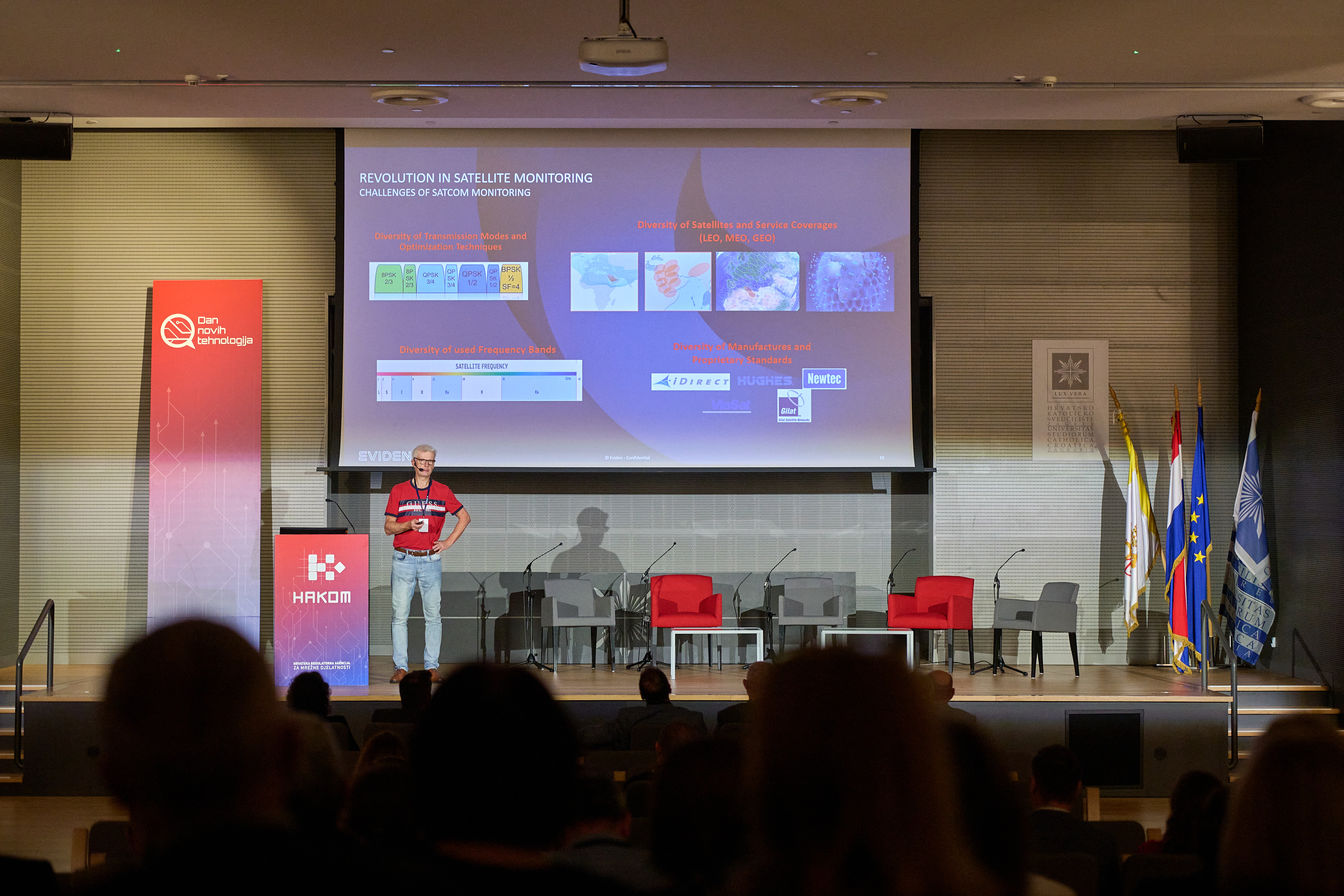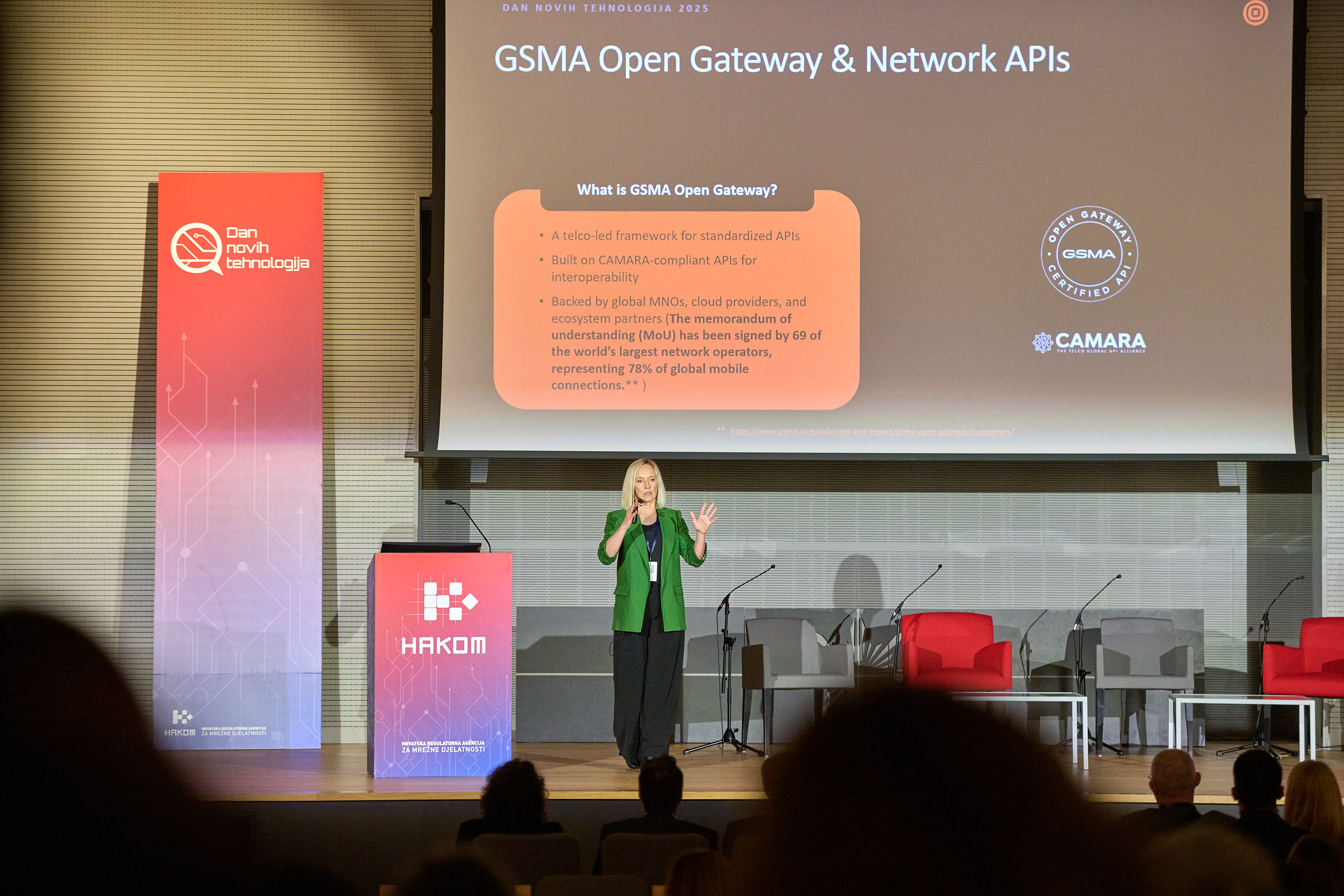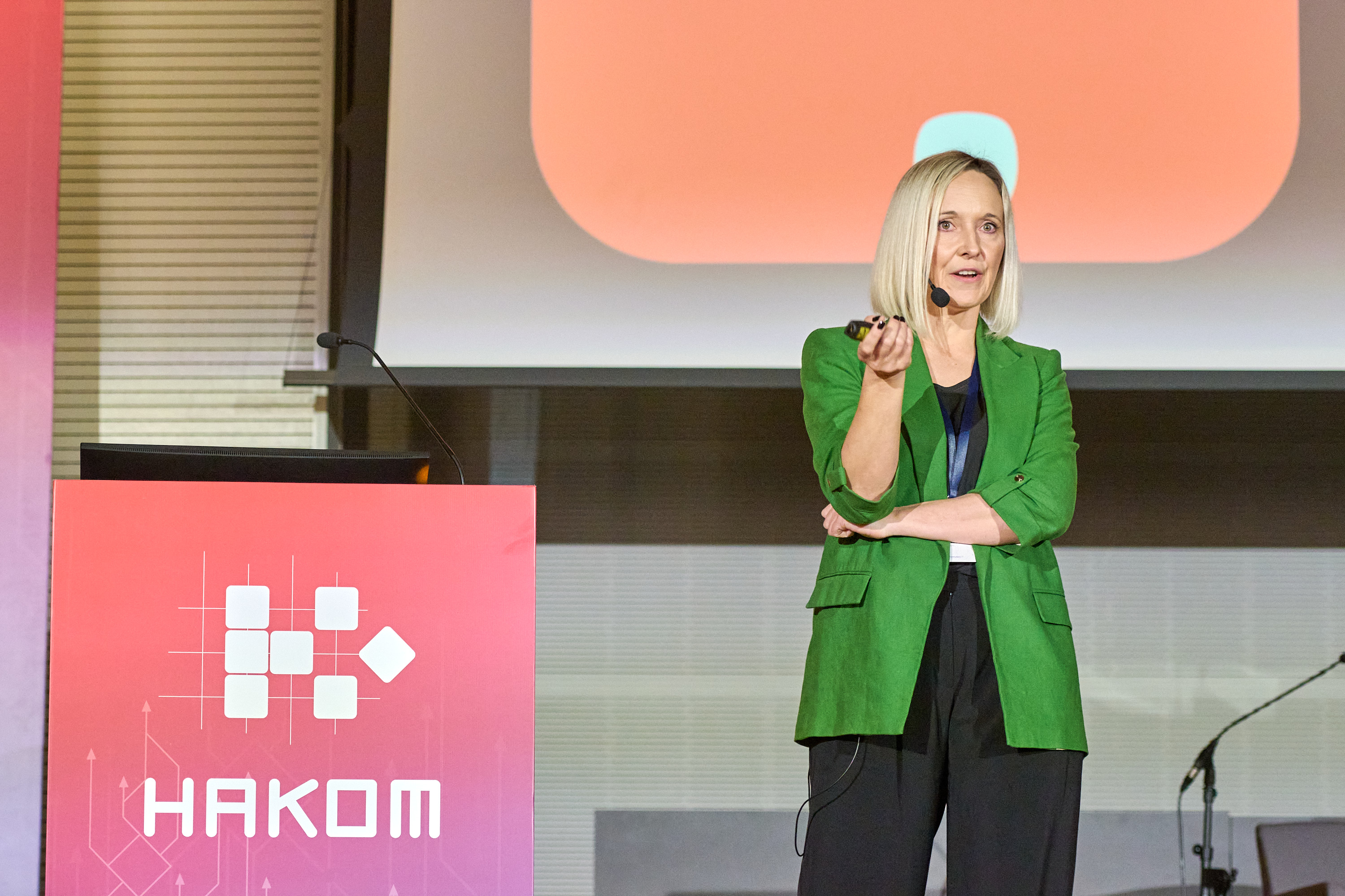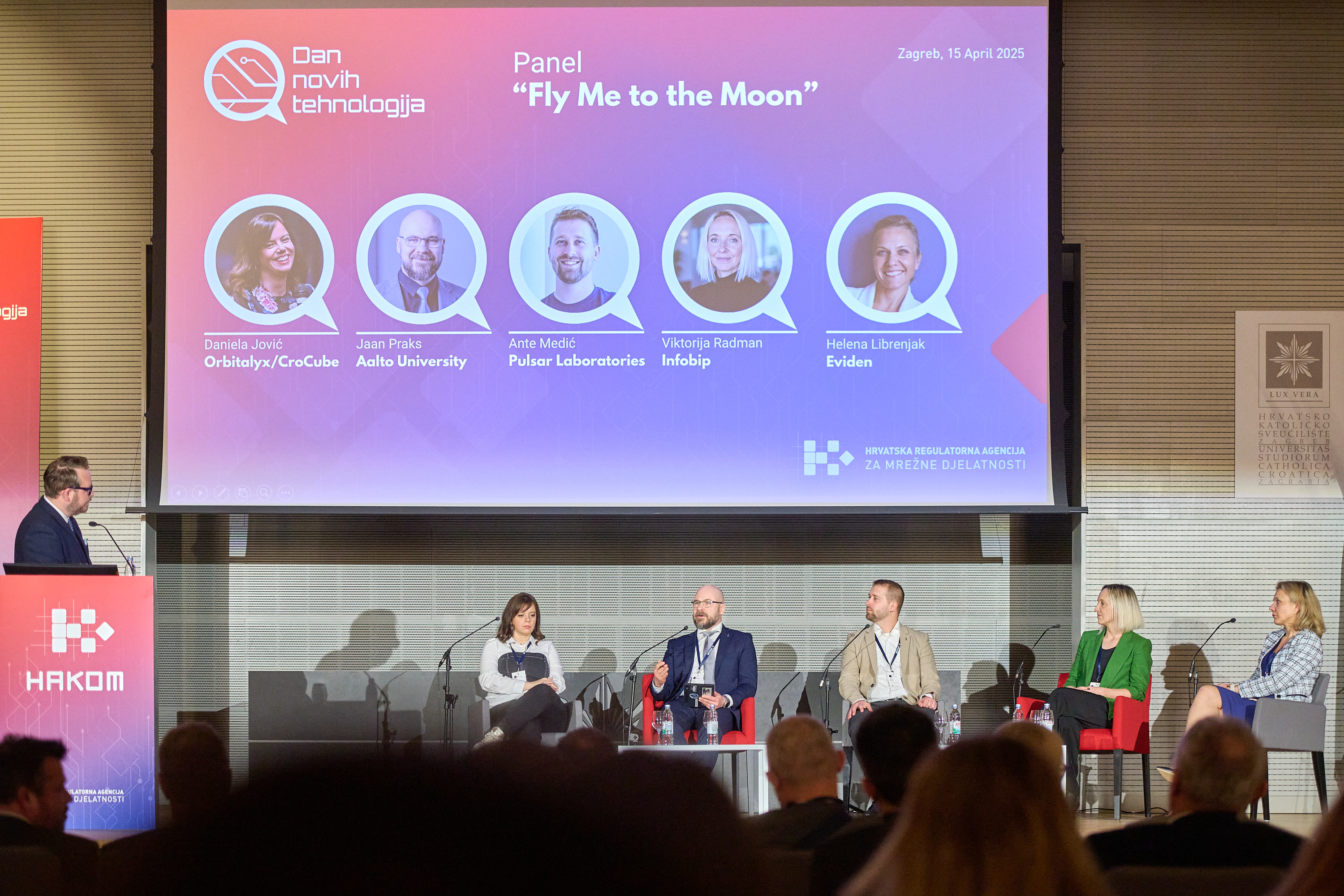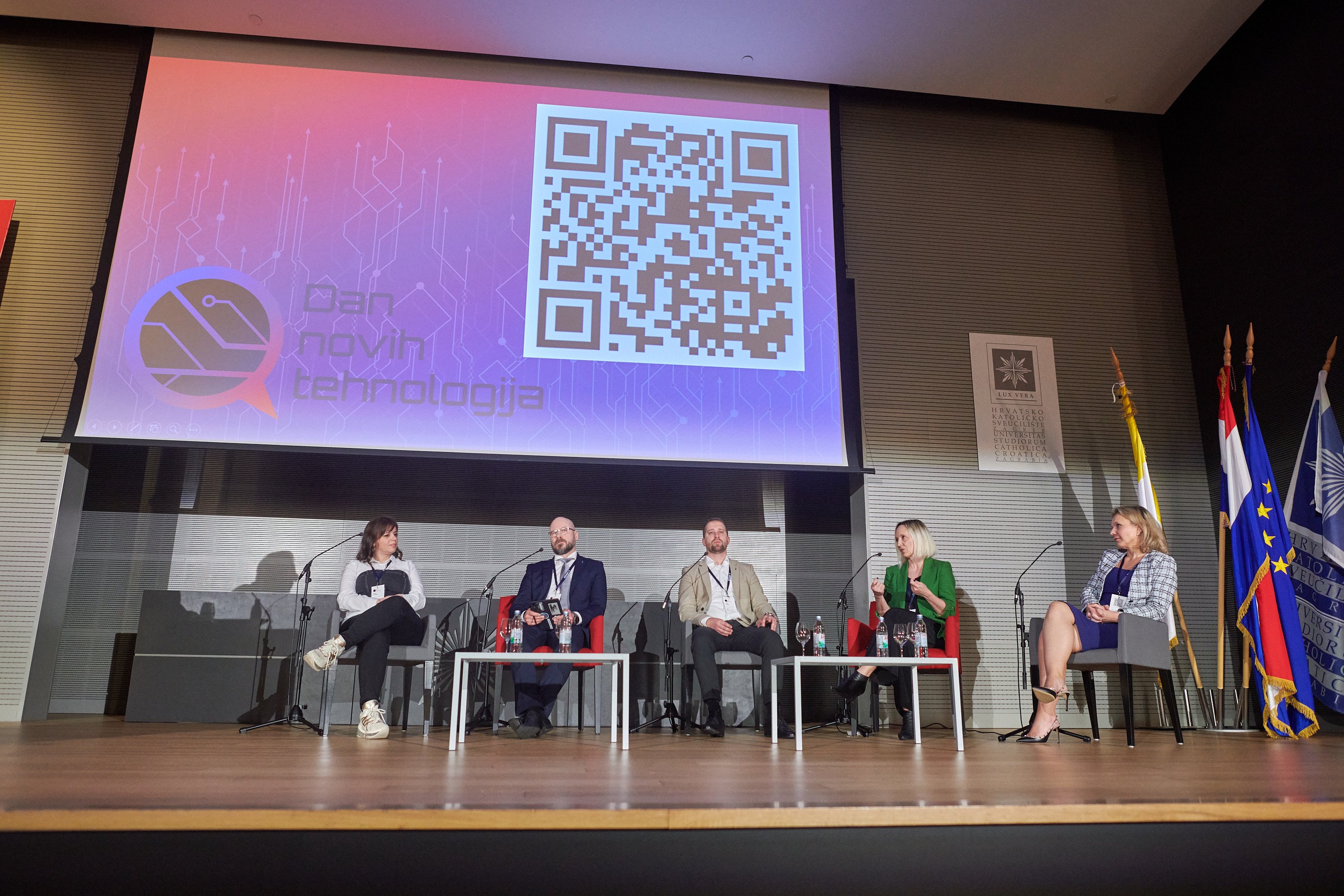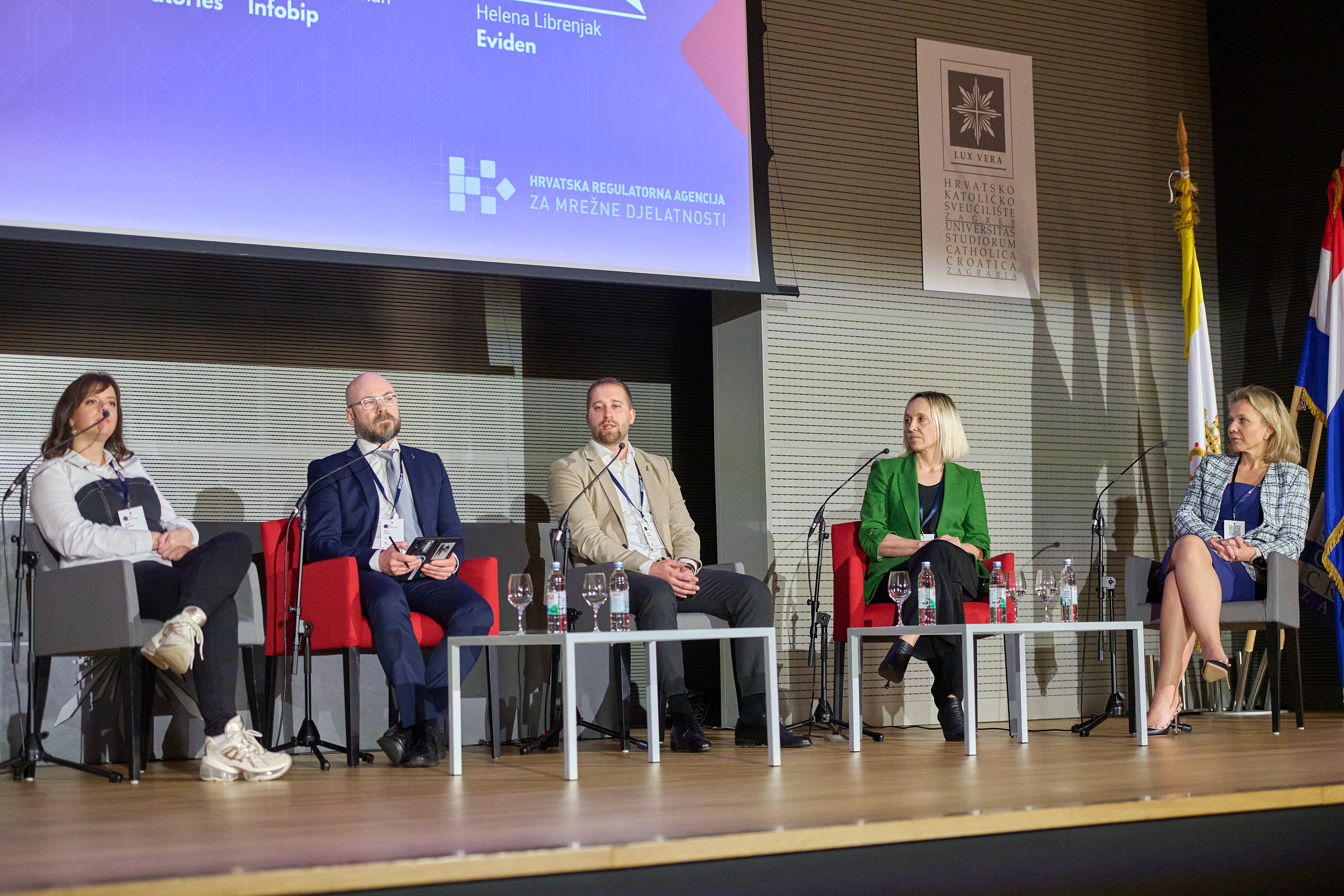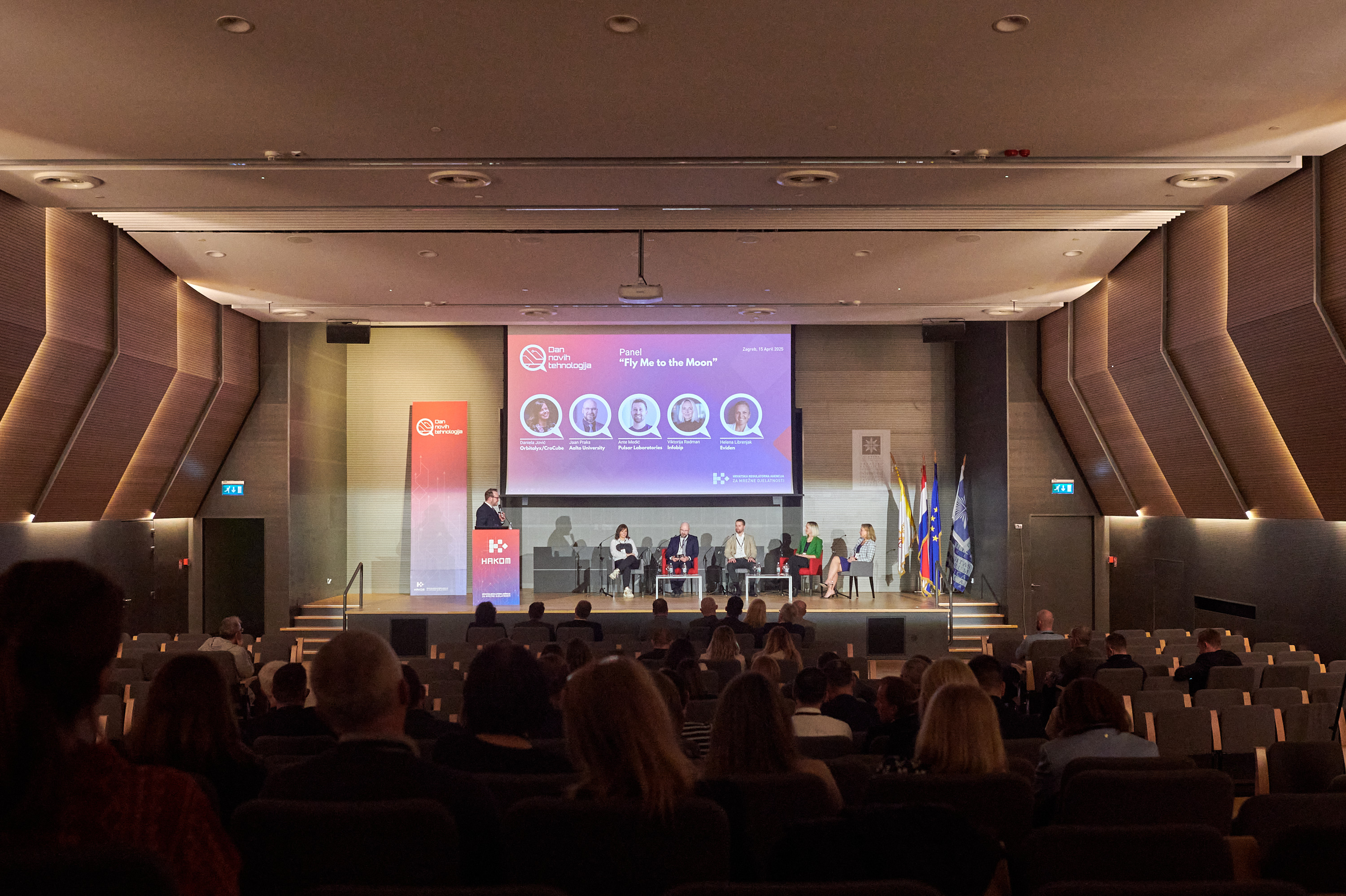HAKOM Conference "Day of New Technologies" Held
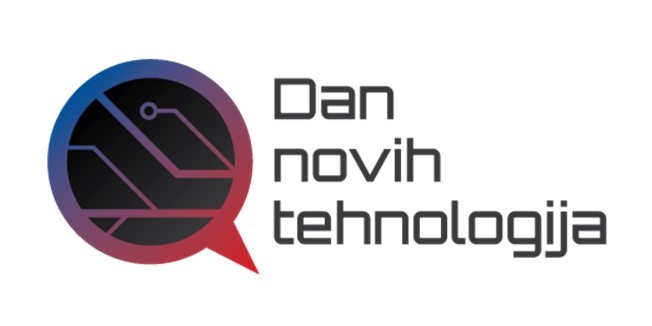
ZAGREB, April 15, 2025 - HAKOM once again hosted the sixth "Day of New Technologies" conference, which focused on emerging technologies and their applications. The event brought together both domestic and international experts, as well as representatives from technology companies, the academic community, and various institutions. The goal of the conference is to connect domestic start-ups and the academic community with telecommunications operators, large companies, embassies, investors, and government institutions, in order to foster synergistic effects and collaboratively launch new projects. The conference was held at the Catholic University of Croatia in Zagreb and attracted over a hundred participants.
Through five engaging presentations, the potential applications of new technologies were explored, with discussions covering the development of satellite and lunar communications, satellite monitoring, and Network APIs. This year’s conference marks the sixth in a series dedicated to new technologies, the first of which was held in 2018, with the aim of highlighting the advantages of introducing the then-new 5G technology and bringing its possibilities closer to end users and the economy.
Croatia is Small, but it Has Enormous Potential
In the opening part of the conference, Tonko Obuljen, the President of the HAKOM Council, addressed the audiance and emphasized that it is imperative for the European Union to ensure secure, reliable, and fast networks for its citizens. Achieving the goals of the Digital Decade will require the use of all technologies, including satellite networks, either independently or in combination with 5G and 6G networks. HAKOM’s "Day of New Technologies" is a place where we meet with stakeholders to exchange experiences and work together on implementing modern solutions into Croatian and European electronic communication networks.
The increasing affordability of satellite communications, along with the mass adoption of these technologies, enables us to achieve seamless connectivity. The further development of D2D (Direct to Device) technology will allow us to use satellite communications on our mobile devices. This can significantly reduce the digital divide for both the population and the economy, especially in hard-to-reach areas or those with poor coverage from base stations.
Danijela Jović, founder of Orbitalyx and mission leader of CroCube, gave a presentation on the topic "A Conversation with the Moon: Challenges in Lunar Communications," where she discussed lunar communications and the challenges of deep space communication. She shared insights from recent lunar missions and introduced upcoming solutions.
"HAKOM was one of the first institutions in Croatia to truly recognise the strategic importance of space technologies. This is a wake-up call: Europe finds itself in a complex geopolitical situation, and the need for technological sovereignty has never been greater. Croatia may be small, but we have smart people and enormous potential to make tangible strides and be part of that future. It's time to raise the bar and take our place in the European space ecosystem," emphasised Danijela Jović.
Small Satellites Have Transformed the Space Economy
Jaan Praks, Associate Professor at Aalto University in Finland, spoke about how small satellites have changed the space economy and the importance of space infrastructure for technologically advanced societies. He emphasised that the development of the space sector starts at the university level, with projects led by students.
"Space is a rapidly growing strategic area of industry where even small nations can contribute and potentially achieve significant profit. Furthermore, it brings highly profitable jobs in the export sector to the country. A great deal of infrastructure will move into space to enable a highly industrialised future," stated Praks.
Ante Medić, co- founder of Pulsar Laboratories, shared his experiences in developing electric propulsion for future satellites in very low Earth orbit. He demonstrated how electric propulsion can enhance the utilisation of very low Earth orbit, reduce latency in satellite communication, and highlighted the other benefits this technology brings.
Space and the space industry are industries of the Future with enormous growth potential, and even small companies have the opportunity to join this growth with innovative products, even from a small country like Croatia, emphasised Medić.
Helena Librenjak and Erwin Greilinger from Evidena presented SkyMon NG - a system for dynamically monitoring the behaviour of the latest generation of very high throughput satellites (VHTS).
"It was a great pleasure and honour for me to participate in the conference on new technologies. Today, we are witnessing significant innovations in the space industry, both in the use of technologies such as AI and in new types of HTS satellites. Our latest achievements in product development are paving the way for more secure, scalable, and efficient systems. These advances are crucial as we face the complexities of the current geopolitical situation, where secure, sovereign, and reliable communication is more important than ever," said Librenjak.
Viktorija Radman, Telecom Global Business Director at Infobip and Board Member of the Mobile Ecosystem Forum, Spoke About the Radical Shift in Communications Due to the Development of Network APIs and the GSMA Open Gateway Initiative.
"Satellite communications and open network APIs are new, innovative forms of established technologies that can be combined to offer numerous benefits for both business and private users. Network APIs, in particular, provide a simple way to integrate a range of telecommunications services that are highly useful across various sectors, from banking and e-commerce to industrial applications. We are already seeing how satellite and terrestrial service providers are collaborating, thus laying the foundation for further success. I am confident that this development will continue and drive an ecosystem that opens many opportunities within the telecommunications industry," emphasised Radman.
After the presentation, a panel discussion followed on the topic "Fly Me to the Moon," which involved all the speakers. They once again highlighted the importance of secure and independent connectivity as the foundation of security and a successful economy.
For additional information please contact:
Croatian Regulatory Authority for Network Industries (HAKOM)
- Roberta Frangeša-Mihanovića 9 Street
- 10110 Zagreb, Croatia
- Tel. + 385 (0) 1 700 70 07
- Fax + 385 (0)1 700 70 70
Media inquiries can be submitted online using HAKOM’s official website: www.hakom.hr
About Hakom
HAKOM - Croatian Regulatory Authority for Network Industries – ensures preconditions for a fair market competition, stable growth and environment for innovations in the electronic communications and postal services market. HAKOM protects users’ interests and the possibility of choice among various communications and postal services at affordable prices, defines sustainable competitive conditions for operators and service providers under fair conditions for return on investment, and provides support to economic growth, public services and the quality of life in the Republic of Croatia by using modern technologies. HAKOM’ strategic goals are: to promote regulation of the electronic communications and postal services market, to support growth of investments and innovations in the electronic communications and postal services market, to provide efficient use of limited resources, to accelerate the growth of broadband products and services, to provide affordable offers of communications and postal services, to provide protection and informing of users, to build an efficient and comprehensive information system, to define and implement efficient processes, and to acquire multi-disciplinary expertise in market regulation.

